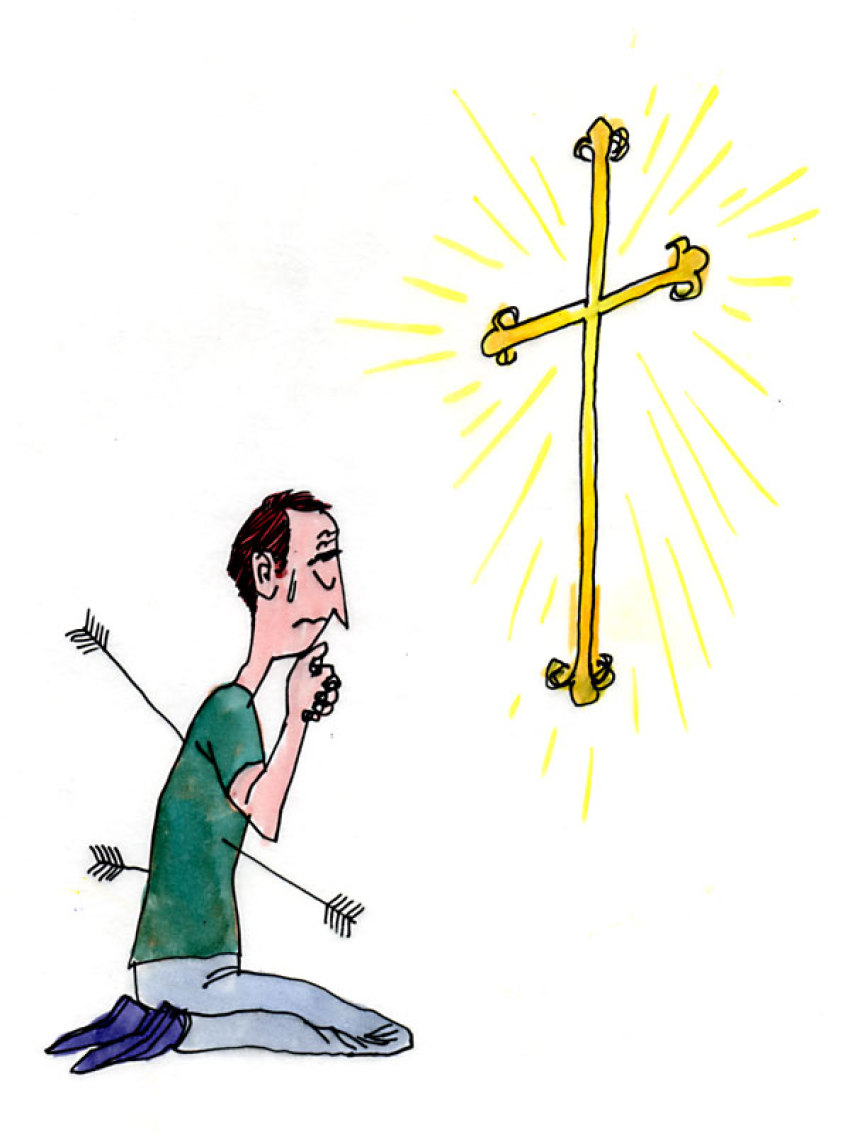Might it be better to suffer?

It’s right to ask God for relief from sickness, financial problems, loneliness, depression, and every other shape and shade of pain. We see people doing this throughout the Bible. Sometimes God grants relief (2 Corinthians 1:10), sometimes he doesn’t (2 Corinthians 12:9). But he never criticizes anyone for asking. I’d even argue that he’s pleased when we ask, because our asking shows that we see him as both powerful enough to deliver us and kind enough to actually consider our requests.
Yet oftentimes God’s lovingkindness may be the very thing that causes him to delay or even withhold deliverance. Because as much as the Lord doesn’t take pleasure in our affliction (Lamentations 3:33), there are things he wants for us more than the alleviation of our pain–things like our humble dependence on his grace and our happiness in his Son. And whether or not we like it, these realities are usually most manifest in us when we suffer, not when we’re at ease. Easy living is rarely conducive to spiritual vitality.
That’s proven true in my life, at least.
I recently experienced a season of significant relief from a particular form of suffering. A year and a half ago I began taking medication to help alleviate the symptoms of my Obsessive Compulsive Disorder (OCD). Upon finding the right medication and dosage, my symptoms diminished greatly. During this process I also met my now-wife, Talitha. Her companionship lifted the burden of loneliness I had carried for nearly a decade. And loneliness, as many of you know, tends to exacerbate other sufferings. So the combination of medication and this new relationship provided me much relief from my anxieties. For the first time in a long time, I felt good. Really good.
And this is where I should talk about how grateful I was to the Lord and how dynamic and fruitful my life in Christ became, right? Wish I could.
In the past I had prayed, “God, if my mind wasn’t so overtaken with OCD, it would be more free to love you and be utilized for you.” So many times I thought and said to others, “I just want these thoughts to be gone so that I can focus on God.” I believed my OCD was a massive hindrance to my relationship with the Lord and that it’s removal would bring new strength to my spiritual life.
But when relief finally came, my response proved the opposite to be true.
Before the relief came, I opened the Bible multiple times a day with a sense of urgency to receive encouragement and empowerment from the Lord. I felt how incapable I was of getting through the day on my own, much less getting through it in a way that was pleasing to God and beneficial to others. I pleaded with God throughout the day to help me believe his words and to help me walk in his grace. In my leisure time I read books that strengthened my faith and listened to sermons and sought out soul-nourishing fellowship with other believers.
But when my suffering lessened, so did my reliance upon God. The fact of the matter is that whether I was anxious or not, depressed or not, lonely or not— I was always weak and in desperate need of his grace. But when the pains of OCD & anxiety became less intense, I didn’t feel the need to pursue him to the same degree. And my daily practices began to reflect this.
My approach to the Bible became increasingly casual. I’d mosey my way through a couple of chapters, pausing throughout to check facebook or answer a text or think about other things. After a few months, I began skipping the Bible altogether some mornings. My prayer life also dried up. Rather than going to God with my needs and for fellowship, I’d often go to my girlfriend. And instead of doing productively restful things in my leisure time, I began to watch more TV, eat more food, and become increasingly slothful and wasteful.
Over time I became numb, detached, lethargic, fruitless, and joyless. Yes, joyless. Ironic, isn’t it? Who would have thought that relief from suffering would result in me having less joy than I did in the midst of the suffering? But that’s precisely what happened.
Fast-forward to five months ago: I came off of my medications (with the approval and guidance of my doctor). Not because I felt like they were at fault for my spiritual decline, but because they had a host of side effects I didn’t want to experience anymore. I decided I would rather endure anxiety than deal with the side effects of the meds.
The intense, chronic anxiety soon returned. But this time around, I view it differently–dare I say, with thankfulness. Why? Because the suffering produces in me a sense of urgency to stay near the Lord’s side. It’s helping me to break free from the grasp of worldly entertainment, as TV and food and social media are no longer sufficient to distract or comfort me. It’s helping me keep my gaze on God and toward eternity, reminding me that my hope should be set “fully on the grace (and freedom! and comfort! and joy!) that will be brought to [me] at the revelation of Jesus Christ” (1 Peter 1:13). This suffering is not a hindrance to my faith but rather a gracious means by which the Shepherd & Overseer of my soul is keeping me close to him, dependent on him, and safe in him.
I wish I wasn’t so weak as to need these waves of affliction to throw me into the Rock of Ages (borrowing Spurgeon’s imagery). But I am. Right now, in this body of flesh, I need sufferings to help keep me in sync with the reality of my frailty and in step with the God of grace. One day, when this weak flesh is swallowed up my immortality, I won’t need these motivators anymore. But until that day comes, might it be better to suffer?
I think so.
Matt Moore is a Christian blogger. You can read more at mattmoore.online.



























